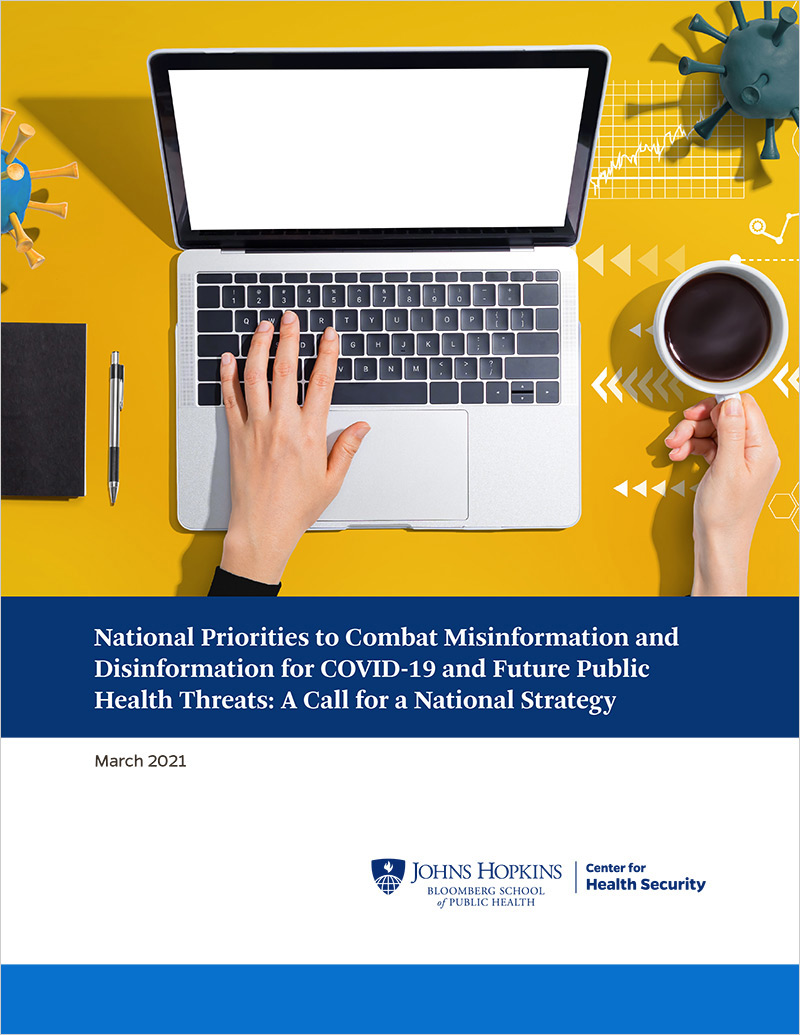New Report: National Priorities to Combat Misinformation and Disinformation for COVID-19 and Future Public Health Threats: A Call for a National Strategy
Center News

March 23, 2021 – The Johns Hopkins Center for Health Security at the Bloomberg School of Public Health released a new report calling on the United States to address the problem of health misinformation and disinformation through a national strategy, to ensure both an effective response to the COVID-19 pandemic and to prepare for the challenges of future public health emergencies.
The World Health Organization and U.S. National Security agencies have expressed concerns over the threat of health-related misinformation and disinformation. The spread of false or misleading information, which includes mischaracterization of the disease or protective measures that are needed to try to control it, information about false treatments or medical interventions, scapegoating groups of people, and conspiracy theories about profiteering and politics, can lead to a range of outcomes that have national security implications and require effective response.
Yet, to date, no U.S. agency or group of agencies are tasked with leading a unified response to misinformation and disinformation, constitutional concerns with free speech limit some potential interventions, and solutions require cooperation across a range of stakeholders.
“It is time for the U.S. to address the problem of health misinformation and disinformation, and the development of a national strategy is an important first step in the establishment of a solution to this threat,” writes Dr. Tara Kirk Sell, Senior Scholar at the Johns Hopkins Center for Health Security, and her co-authors of the new report.
The report, National Priorities to Combat Misinformation and Disinformation for COVID-19 and Future Public Health Threats: A Call for a National Strategy, lays out four pillars that should guide a national strategy:
Pillar 1: Intervene against false and damaging content as well as the sources propagating it
- Establish a multiagency national security response effort that prioritizes management of disinformation
- Establish a national non-partisan commission to improve the health communication landscape
- Encourage active, transparent, non-partisan intervention from social media and news media companies
Pillar 2: Promote and ensure the abundant presence and dissemination of factual information
- Prioritize consistent public health risk communication across the country
- Increase coordination between public health experts and sources of public information, including social media platforms and news media
Pillar 3: Increase the public’s resilience to misinformation and disinformation
- Safeguard and promote health and digital literacy and access
- Improve resources for public verification of questionable content
Pillar 4: Ensure a whole-of-nation response through multisector and multiagency collaboration
- Ensure multisector collaboration to develop a national strategy to combat public health misinformation
- Increase coordination across government stakeholders and conduct a cross- governmental analysis of efforts and responsibilities for managing health-related misinformation and disinformation
